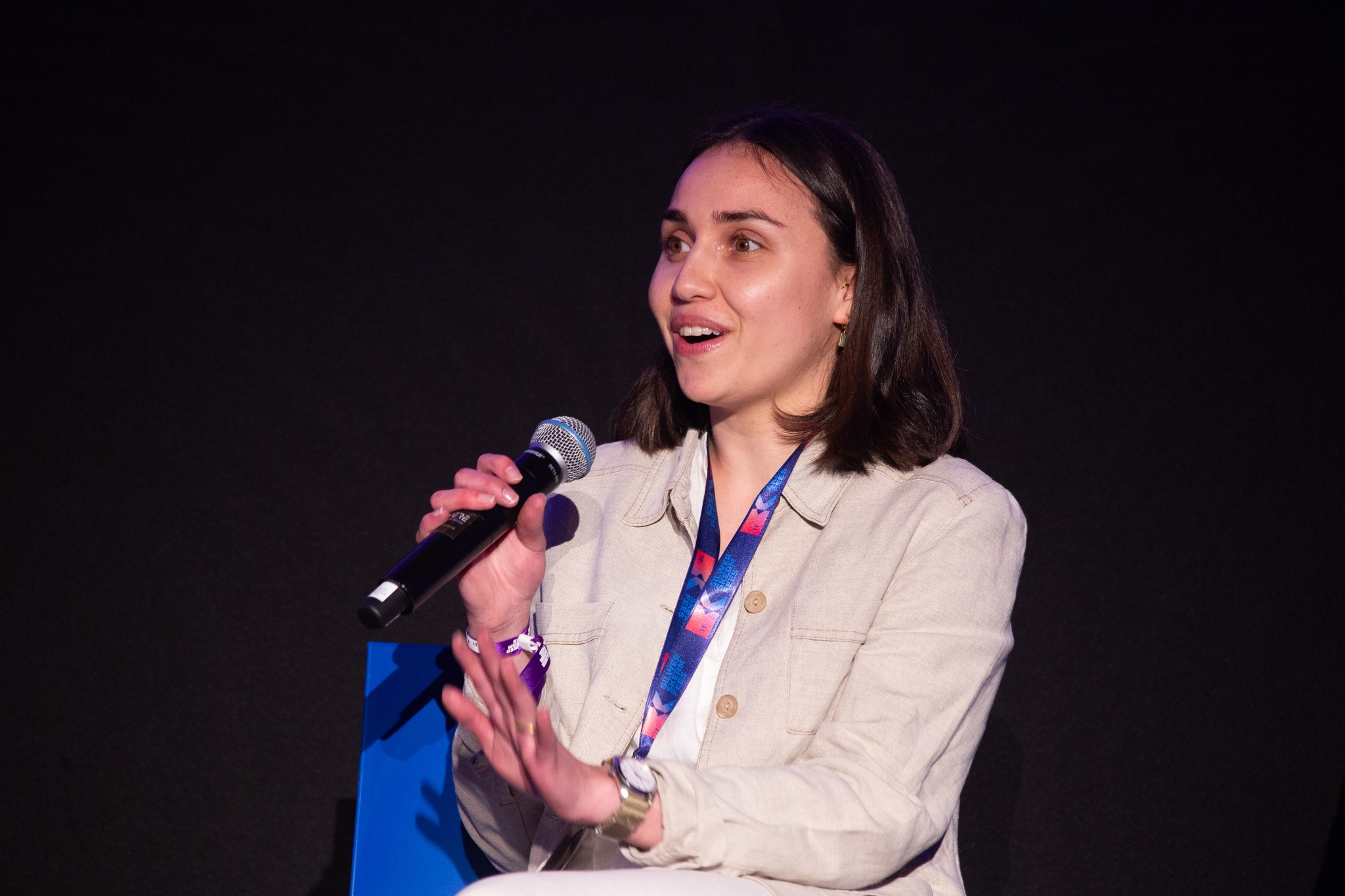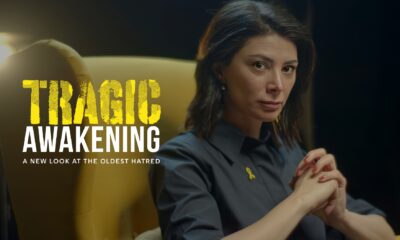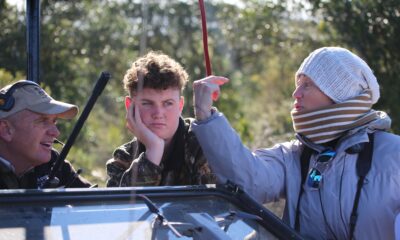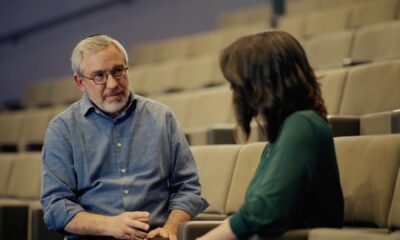
Lifestyle/Community

Filmmaker lays bare reality of BRCA1 gene
Growing up, filmmaker Gabriella Blumberg was aware that her mother, grandmother, and great-grandmother had the BRCA1 gene and that they had all developed breast cancer. This knowledge led her to get tested for the BRCA1 genetic mutation and subsequently undergo a risk-reducing double mastectomy two years ago at the age of 26. The experience deeply affected her, and she has channelled her experience into her new Afrikaans film, Volle Bors (Bare).
“When I was 13, my mom, who is now healthy and well, was diagnosed with breast cancer,” says Blumberg. “My grandmother was diagnosed at the young age of 26, and battled cancer for the rest of her life. My mom was the first generation to test for the BRCA gene mutation, and this was a big shift from previous generations, where cancer wasn’t spoken about. It was her openness about the mutation that made it something that we could engage with without fear, shame, or stigma.”
When Blumberg went through the risk-reducing surgery, she started sharing her story. “Many people reached out to me from within our community who were also going through the same decision-making process. As a filmmaker, I’ve seen how stories can be the key ingredient in breaking stigma. This mutation is extremely common in the Ashkenazi Jewish community – one in 40 Ashkenazi men and women are affected. It’s also a common mutation in the Afrikaans community. I work with filmmaker Jordy Sank, and he encouraged me to submit a fictional script based on my experience to kykNET’s Silwerskermfees, a fantastic Afrikaans film festival.”
The script was selected, and they commissioned the short film. Based on Blumberg’s own experience, it tells the story of Eva, a poet who uncovers her high genetic risk for breast cancer and navigates the decision to remove her breasts preventatively.
“It was a challenging process to write the script and translate it to get the nuance of the Afrikaans language correct while remaining true to my experience,” says Blumberg. The film had to be made in Afrikaans because it was commissioned by kykNET.
The film premiered on 25 August at the 11th Silwerksermfees in Cape Town, where it won best musical score. “The film was well received, and there was a great Q&A session that highlighted the impact that this film can hopefully continue to have,” says Blumberg. “We had a phenomenal cast and crew that really came together to bring this story to life.”
The BRCA gene is a tumour suppressor gene that affects both sexes, she says. If one has a mutation, it may lead to a higher risk of breast and ovarian cancer. There are many factors involved and everyone has a different risk profile.
Going back to her own story, Blumberg says that after she finished school, she decided to get tested for the genetic mutation. “I felt empowered to have access to this knowledge. It’s a very personal decision, and I recommend going for genetic counselling to understand your risk profile and risk-reducing measures.
“After testing positive for the mutation and finding out that my risk profile was extremely high, I started doing more research. I was tested when I was 18 years old, and it was only when I was 26 that I decided I was ready to undergo a risk-reducing double mastectomy. Within that time, I was going for ultrasounds and MRIs to monitor my breasts and a blood test every year to detect tumour markers for ovarian cancer.
“About a year before my surgery, I reached out to surgeons. This was an incredible opportunity because I felt that I had time to find the right fit for me and to ask detailed questions about the methods available. My surgeons also put me in touch with men and women who had gone through the procedure. This helped immensely, as I could speak to them about their process, from the logistics to the personal stories. The surgery requires time off and rehabilitation physiotherapy. There are multiple options for reconstruction, and surgeries may differ per individual.”
She says those deciding to have risk-reducing procedures are known as “previvors”, and there still isn’t much conversation about the emotions that these “previvors” experience, which is different to those of cancer survivors. “Recently, I alongside genetic counsellor Monica Araujo started an information page and support group called @positivelypredisposed on social media, so that information is accessible and there is a space for shared experience,” Blumberg says.
She feels extremely fortunate “to be surrounded by friends and family who have been supportive. Speaking to other ‘previvors’, I heard stories of difficult opinions – such as the surgery being akin to a cosmetic choice, or being told that they are being extreme. Family dynamics, opinions on breastfeeding, and intimacy with one’s partner may also come into play.”
Going back to the film, Blumberg says, “I want to say a big thank you to Silwerskermfees. This is the second short film that we as Sanktuary Films have screened there and the experience has been phenomenal. Our short film Leemtes en Leegheid (A Void) which premiered last year at Silwerskermfees, directed by Jordy Sank and produced by me and Samantha Pelteret has just been nominated for a South African Film and TV Award for Best Short Film.
“We also say a big thank you to those within our community who helped make this film happen – the Strauss family whose house we filmed in, and many members of Joburg Jewish Mommies who were extras in the film! More information on the film can be found on social media on @sanktuaryfilms, and Volle Bors will be showing on Showmax soon.”
Blumberg will continue to take proactive measures to reduce her risk and monitor for breast and ovarian cancer, “but I do this knowing that I have been active in decisions regarding my body and that I have done everything in my power to be healthy, alive, and present. I’m not proposing that every individual make the same decisions I made, but I advocate that people take agency of their bodies and make informed decisions that are authentic to them,” she says.
“I hope that this film can be a support for those who need it. I encourage people to follow @positivelypredisposed and to reach out if you want more information or if you just want to share your story.”










